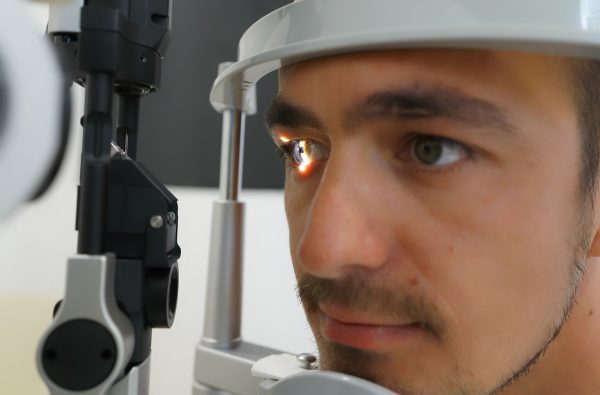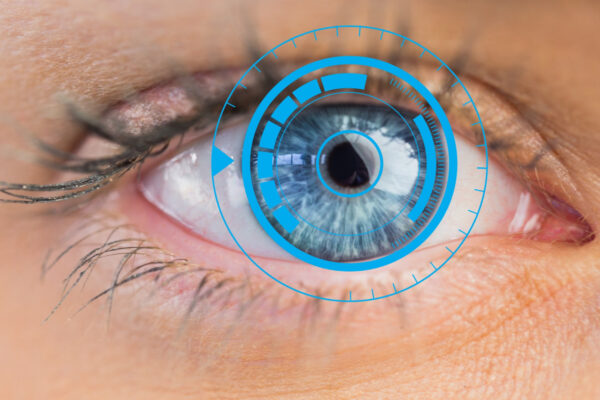Eat for Good Eye Health
When it comes to protecting against eye-related conditions and diseases, what a person eats can greatly impact the risk factors. With that being said, let’s explore how Lutein & Zeaxanthin can help with taking care of your vision.
What Are Lutein and Zeaxanthin?
Lutein and zeaxanthin are carotenoids known for their significant role in maintaining and improving eye health. These powerful antioxidants are found naturally in various foods and are concentrated in the macula of the human eye, where they help protect against harmful high-energy light waves like ultraviolet rays. Incorporating lutein and zeaxanthin into your diet or through supplementation can provide numerous benefits for your vision and overall eye health.
The Science Behind Lutein and Zeaxanthin
Antioxidant Properties and Blue Light Protection
Lutein and zeaxanthin serve as primary antioxidants in the macula and retina. They filter harmful blue light, reducing oxidative stress on the eyes. This protective function minimizes damage to the photoreceptor cells and helps maintain optimal visual function.
Research shows that these carotenoids can significantly improve the density of macular pigment—a factor linked to reduced risk of macular degeneration. Studies have also confirmed their ability to mitigate the effects of prolonged screen exposure, a modern-day challenge for many.
Supporting Visual Acuity
Lutein and zeaxanthin enhance contrast sensitivity and visual sharpness. By boosting macular pigment optical density (MPOD), they contribute to better detail recognition, especially in low-light conditions. This improvement in visual performance is particularly beneficial for tasks requiring precision, such as reading or driving at night.
Health Benefits of Lutein and Zeaxanthin
Protection Against Age-Related Macular Degeneration (AMD)
Age-related macular degeneration (AMD) is a leading cause of blindness in older adults. Lutein and zeaxanthin help reduce the risk and progression of AMD by strengthening the macula against degenerative changes. A higher intake of these carotenoids is associated with a significantly lower likelihood of developing advanced AMD.
Reducing the Risk of Cataracts
Cataracts, characterized by the clouding of the eye lens, can severely impair vision. The antioxidant properties of lutein and zeaxanthin neutralize free radicals, preventing oxidative damage to the lens. Studies indicate that individuals with higher dietary intake of these nutrients exhibit a lower prevalence of cataracts.
Alleviating Symptoms of Digital Eye Strain
Digital screens emit blue light, which can strain the eyes and cause discomfort. Lutein and zeaxanthin’s blue light-filtering capabilities make them effective in alleviating symptoms of digital eye strain, such as dryness, irritation, and blurred vision. Supplementation with these carotenoids may be particularly beneficial for individuals who spend extended periods on electronic devices.
Nutrition Information on Lutein and Zeaxanthin

| Nutrient | Benefits | Key Foods |
|---|---|---|
| Lutein & Zeaxanthin | Protects the macula and promotes eye health | Kale, Spinach, Romaine Lettuce, Collard Greens, Turnip Greens, Sweet Corn, Broccoli, Peas, Kiwi, Oranges, Squash, Brussels Sprouts, Eggs, Chard ****WebMD recommends 10 mg/day for lutein and 2 mg/day for zeaxanthin. |
Supplements
For individuals unable to meet their nutritional needs through diet alone, lutein and zeaxanthin supplements can provide a convenient alternative. Always consult with a healthcare provider before starting any supplementation regimen to determine appropriate dosage and avoid potential interactions.
Popular lutein and zeaxanthin supplements include:
- MacuHealth with LMZ3 (MacuHealth LLC)
- EyePromise Zeaxanthin (Zeavision)
- ICaps Eye Vitamin Lutein & Zeaxanthin Formula (Alcon)
- Macula Complete (Biosyntrx)
- MacularProtect Complete (ScienceBased Health)
- MaxiVision Ocular Formula (MedOp)
- OcuGuard Plus (TwinLab)
- Ocuvite (Bausch + Lomb)
The source of lutein in many lutein supplements is marigold flowers, while for zeaxanthin it is often red peppers. If you choose a lutein and zeaxanthin supplement, make sure it’s a high-quality product from a reputable dietary supplement company.
How to Incorporate Lutein and Zeaxanthin into Your Diet
Meal Planning Tips
- Include a variety of colorful fruits and vegetables in your meals to ensure an adequate intake of these nutrients.
- Use healthy cooking methods such as steaming or sautéing with olive oil to preserve the carotenoid content and enhance absorption.
Pairing Foods for Better Absorption
Since lutein and zeaxanthin are fat-soluble, consuming them with healthy fats improves their absorption. For instance, adding avocado or nuts to a spinach salad boosts the bioavailability of these nutrients.
Lutein and zeaxanthin are essential nutrients for maintaining long-term eye health. By incorporating these carotenoids into your daily routine through a balanced diet or supplements, you can protect your eyes from age-related conditions, enhance visual performance, and reduce the effects of digital strain. For personalized advice, consult with an eye care professional to determine the best approach for your specific needs.
LASIK Eye Surgery As An Option
If you are in need of vision correction, you may be considering LASIK eye surgery. In order to be a strong candidate for LASIK, you must have healthy eyes. This is just one more reason to be proactive and support your eye health by eating healthful foods containing lutein and zeaxanthin.
If you are interested in learning more about your laser eye surgery options, schedule a free consultation at a location near you.

Find a LASIK Surgery Location Near You
We’re located nationwide – it’s easy to find a LASIK Vision Center near you.
Resources:
American Optometric Association. (2019). Lutein & Zeaxanthin. AOA.org. Retrieved from https://www.aoa.org/patients-and-public/caring-for-your-vision/diet-and-nutrition/lutein
Koushan, K., Rusovici, R., Wenhua, L., Lee, F. R., & Chalam, K. (2013). The Role of Lutein in Eye-Related Disease. Nutrients. 5(5). Retrieved from https://www.ncbi.nlm.nih.gov/pmc/articles/PMC3708350/
O’Brien, S. (2018). Lutein and Zeaxanthin: Benefits, Dosage and Food Sources. Healthline.com. Retrieved from: https://www.healthline.com/nutrition/lutein-and-zeaxanthin#eyes
National Institute of Health (2022.) Lutein and Zeaxanthin and Their Roles in Age-Related Macular Degeneration—Neurodegenerative Disease. Retrieved January 14, 2025 https://pmc.ncbi.nlm.nih.gov/articles/PMC8874683/
WebMD. (2023). Lutein and zeaxanthin for vision: Uses and benefits. Retrieved January 14, 2025, fromhttps://www.webmd.com/eye-health/lutein-zeaxanthin-vision
Categories:



